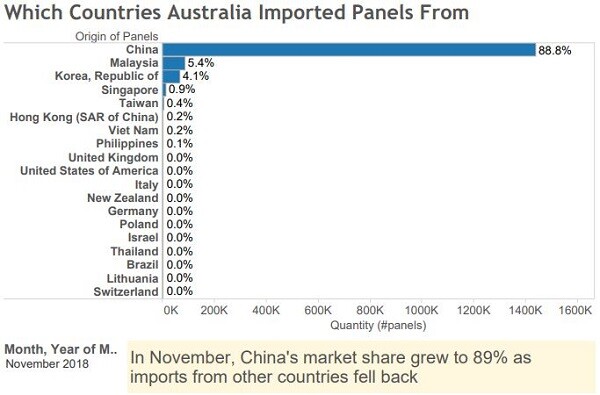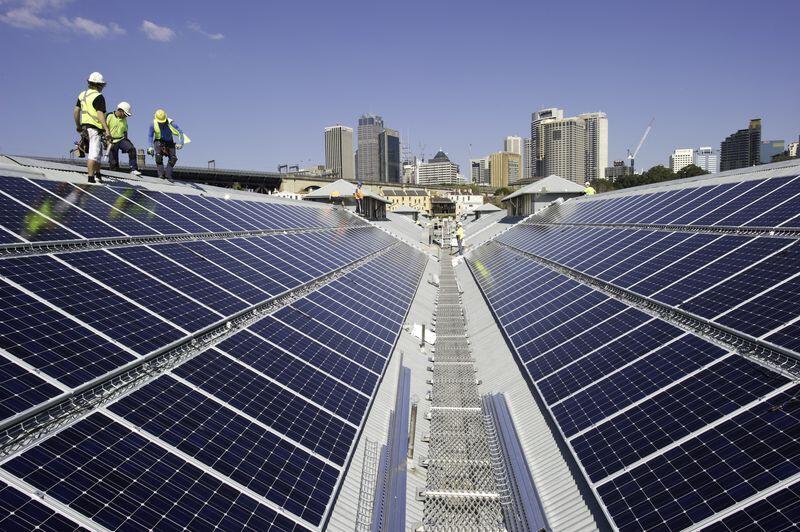As a small business you will have a number of on-going expenses to consider. A few of these would be licences & insurance, staffing & wages, stock purchases, marketing and POWER BILLS! These outlays will generally continue to rise in cost however a small commercial solar install will help reduce one of these – can you guess which one!
Getting started can be the tricky part as there are now over 5,000 solar installers across Australia with an abundance of different solar packages containing different sizes, brands and warranty periods.
We’ve assessed thousands of commercial buildings for solar and here are some of the most important considerations.
Do you own the building?
If you are both the business and building owner then this is a great start as you become in control of your roof area. If the building is leased/rented then we advise that you speak to your landlord first and tell them that you would like to investigate solar for your business.
If you have sufficient length left on your lease then solar can pay back in spades before your lease is up. Ideally you’ll have at least 3 years left, otherwise we recommend you seek some contributed from you landlord to support the project.
What are your energy costs and energy usage patterns?
A good solar company will want to model the output of different system sizes against your energy usage to determine the optimal system size.
Its a good idea to get a recent history of your power bills including from summer and winter to establish any seasonality in your business operations. It is also crucial to understand the typical business hours and what sort of equipment is driving your energy usage. For office spaces this typically relates mainly to when you are running the air conditioning.
If you have a smart meter installed, you can also request 12 months of interval data from your electricity retailer. This basically provides a meter reading every 15 or 30 minutes for the last year which makes life easy for a solar designer and makes estimates extremely accurate.
How much does solar cost for small businesses?
Have a look at the below table to see the latest average small business solar pricing in your state from the Solar Choice Commercial Price Index:
| Nov-25 | 10kW | 30kW | 50kW | 70kW | 100kW |
|---|---|---|---|---|---|
| Adelaide, SA | $9,400 | $29,680 | $52,660 | $72,450 | $90,090 |
| Brisbane, QLD | $10,410 | $28,160 | $49,860 | $71,930 | $88,540 |
| Canberra, ACT | $10,550 | $34,900 | $48,860 | $62,530 | $86,820 |
| Hobart, TAS | $12,560 | $28,080 | $46,440 | $64,640 | $76,410 |
| Melbourne, VIC | $10,870 | $28,420 | $50,510 | $65,700 | $82,410 |
| Sydney, NSW | $9,400 | $26,150 | $46,820 | $63,650 | $83,670 |
| Perth, WA | $10,830 | $27,020 | $51,700 | $66,630 | $82,360 |
| All | $10,570 | $28,920 | $49,550 | $66,790 | $84,330 |
Whilst having money in the bank is great not all small businesses are cash-flourished! Luckily there are several ways in which a small business can invest in a solar array which include loans, Power Purchase Agreements (PPA’s) and Operating Lease’s. Please see here for a detailed rundown.
If you have a fixed budget then the solar system capacity can be scaled up or down to meet your requirements
How to find the optimal system size for small business?
Some businesses may be limited by roof space available, some may have just enough whilst others may have an abundance of space with only a relatively small power bill. Whichever category you fall under sizing is important.
Electricity retailers will generally either give you nothing or pay a relatively low Feed in Tariff rate, this means that if you have a larger solar system than what your consumption pattern is the excess power goes back to the grid. As a result you need to design a solar system to meet the daytime needs of the business whilst limiting exported energy.
One of Solar Choice’s engineers can recommend an optimal system size for you for free – click the link below:
Request a free solar business case and compare leading commercial installers
What solar rebates can small businesses get?
The Federal Government rebate comes in the form of Small-scale technology certificates (STC’s) and is applicable to all small businesses looking to invest in a solar array for the first time.
Generally as a rule of thumb the rebate equates to around a third off the cost of a solar install price. If you would like to know the current value of each certificate as well as complete a calculation on how much rebate you would be entitle to, please see Green Bank for assistance.
What solar products should are best?
There are a broad array of good and bad solar panels and inverter which form the main parts of a solar system. Solar Choice has independently reviewed all brands that are available on the Australian market.
You can read through our written reviews or check out video reviews from most brands on our youtube channel.
Please note that these days the vast majority of solar panels a produced in China.

See our complete buyers guide to selecting a good Solar Panel brand.
What is the ROI for solar for small businesses?
In recent years we’ve seen solar panel prices drop even further and electricity prices rise. This is considered the perfect storm for a solar business case and we’re now typically seeing the payback period for solar somewhere between 1 – 3 years.
For larger system sizes, the return on investment can extend a bit as large commercial and industrial businesses typically have access to better electricity rates. For a further look into this for your state please read our detailed article here.
Solar Choice offers a free service to anlayse the potential of solar for Small Businesses anywhere in Australia.
Request a free solar business case and compare leading commercial installers
Since 2008 Solar Choice has consulted with over 3,000 businesses around Australia and helped develop over 800MW solar commercial and solar farm projects.
- Solar and battery installed in Apartment Building - 15 April, 2025
- 80 Royal St installs 100kW Solar System in Embedded Network - 20 September, 2024
- Strata building in Bardon, QLD installs 22kW solar - 20 September, 2024
